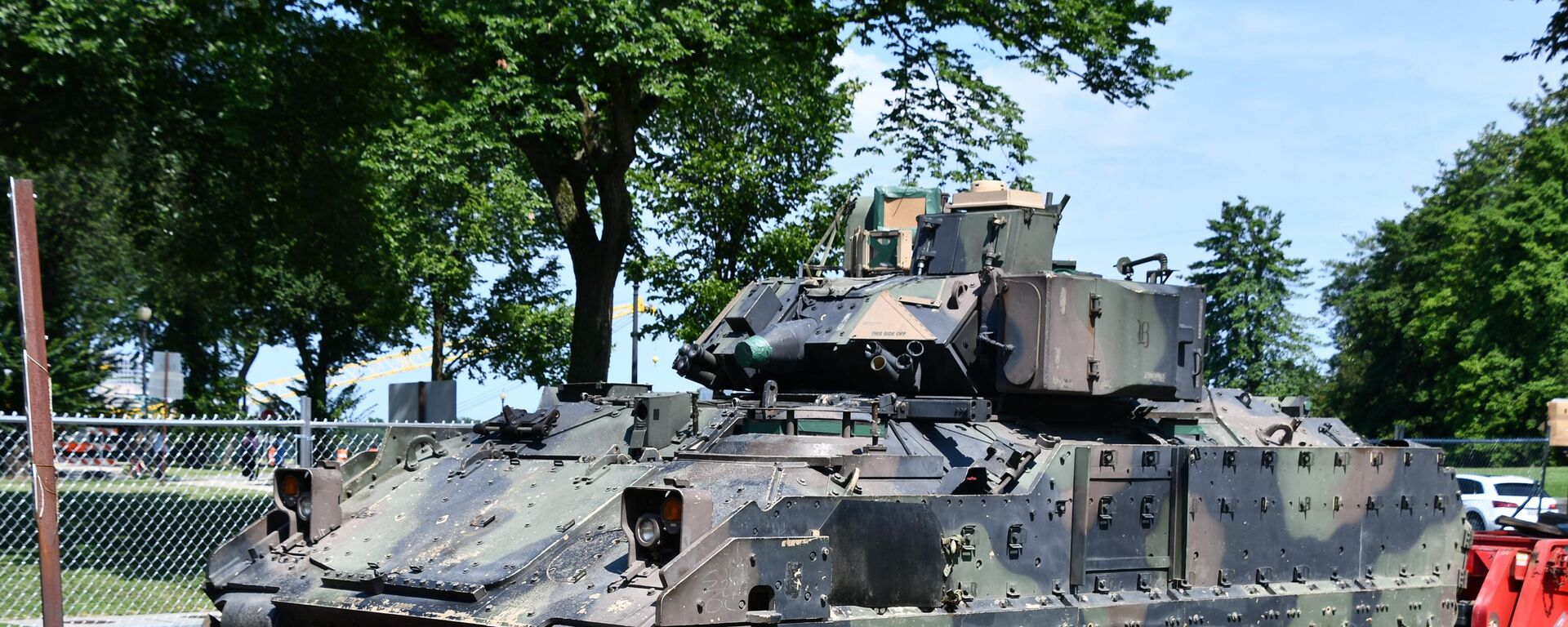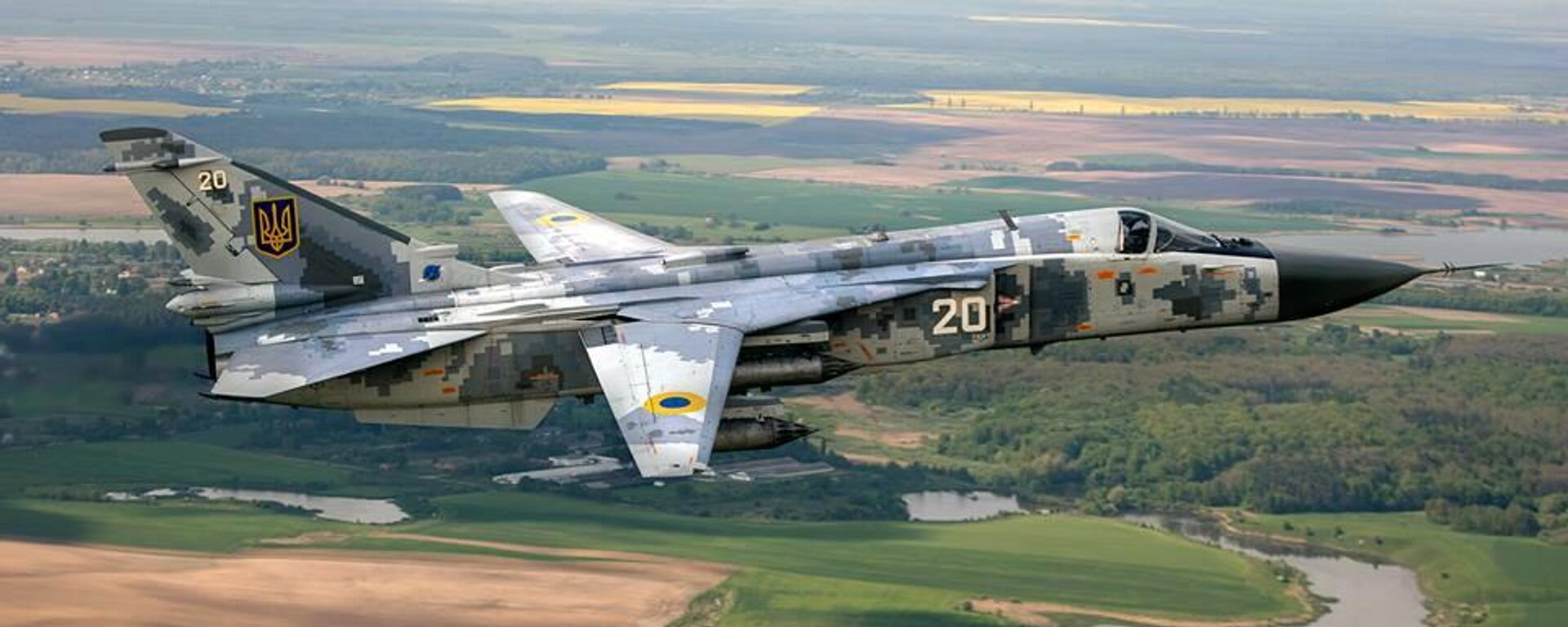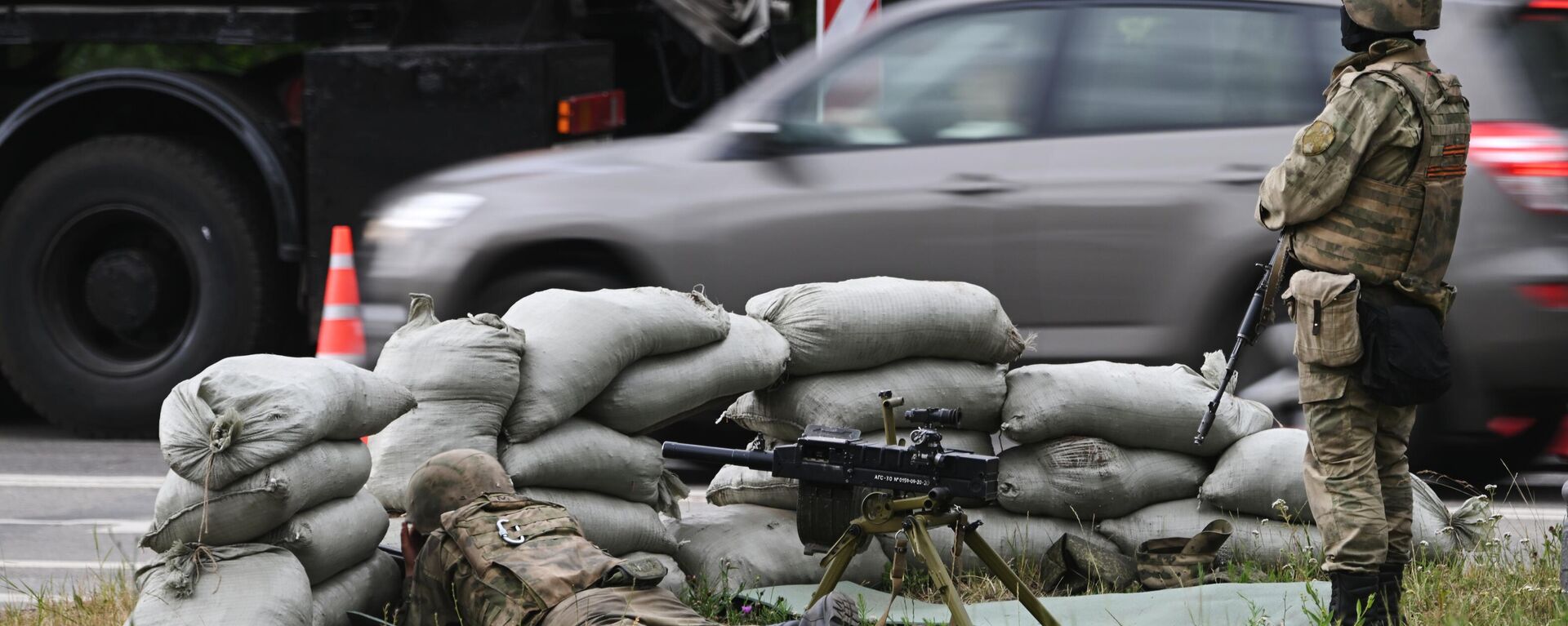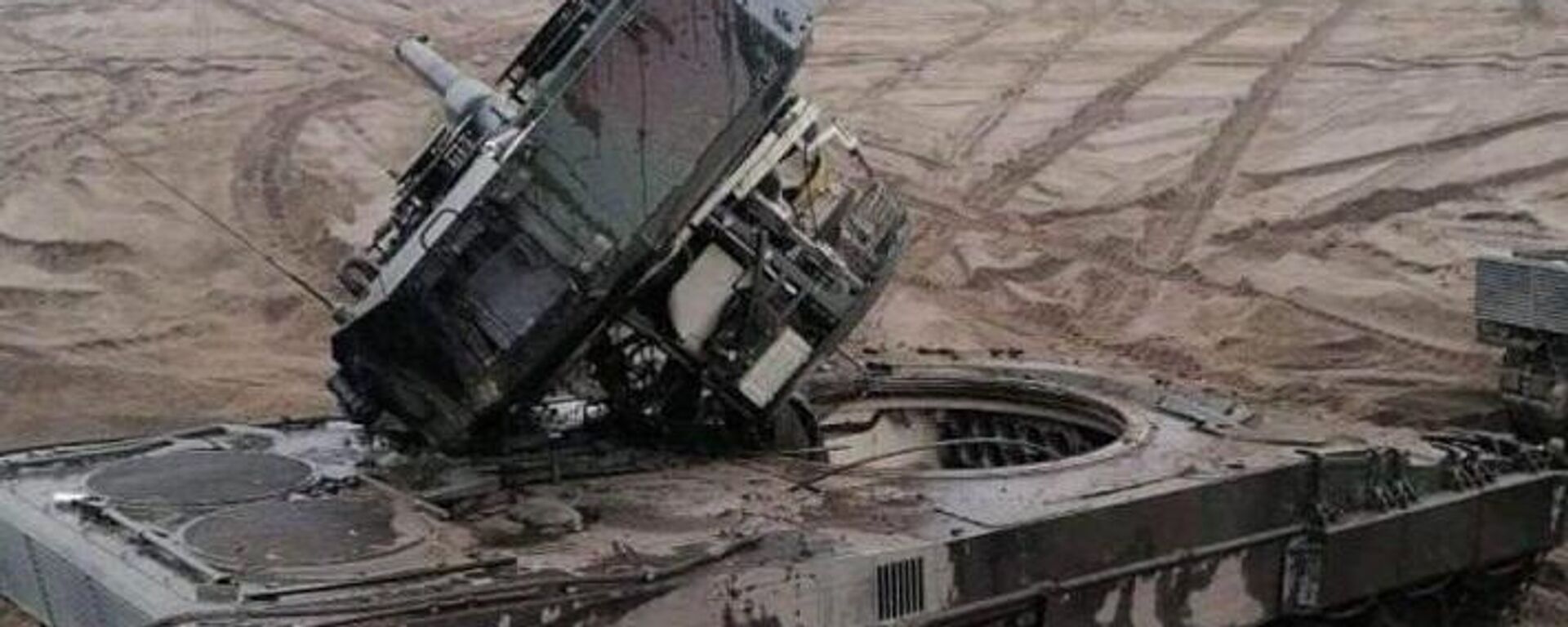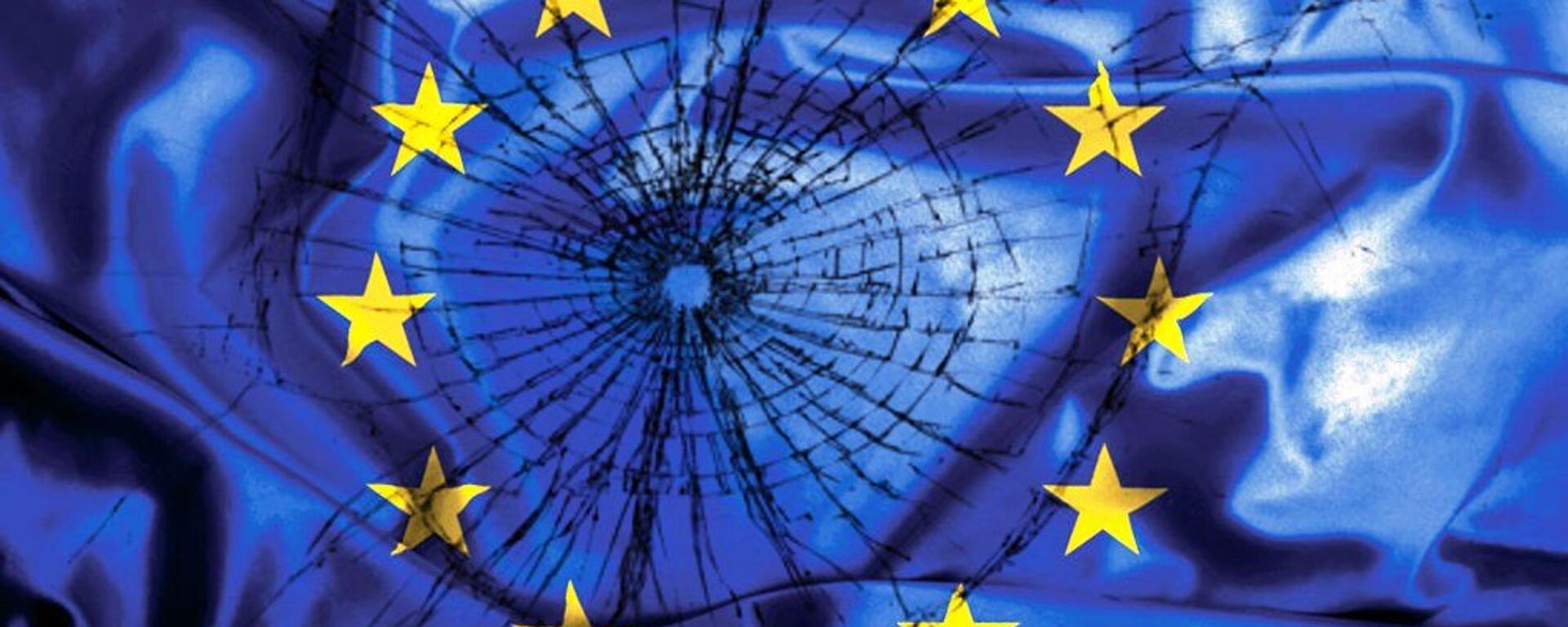US Hawks Lose Momentum Amid Faltering Ukrainian Counteroffensive
16:22 GMT 28.06.2023 (Updated: 16:25 GMT 28.06.2023)
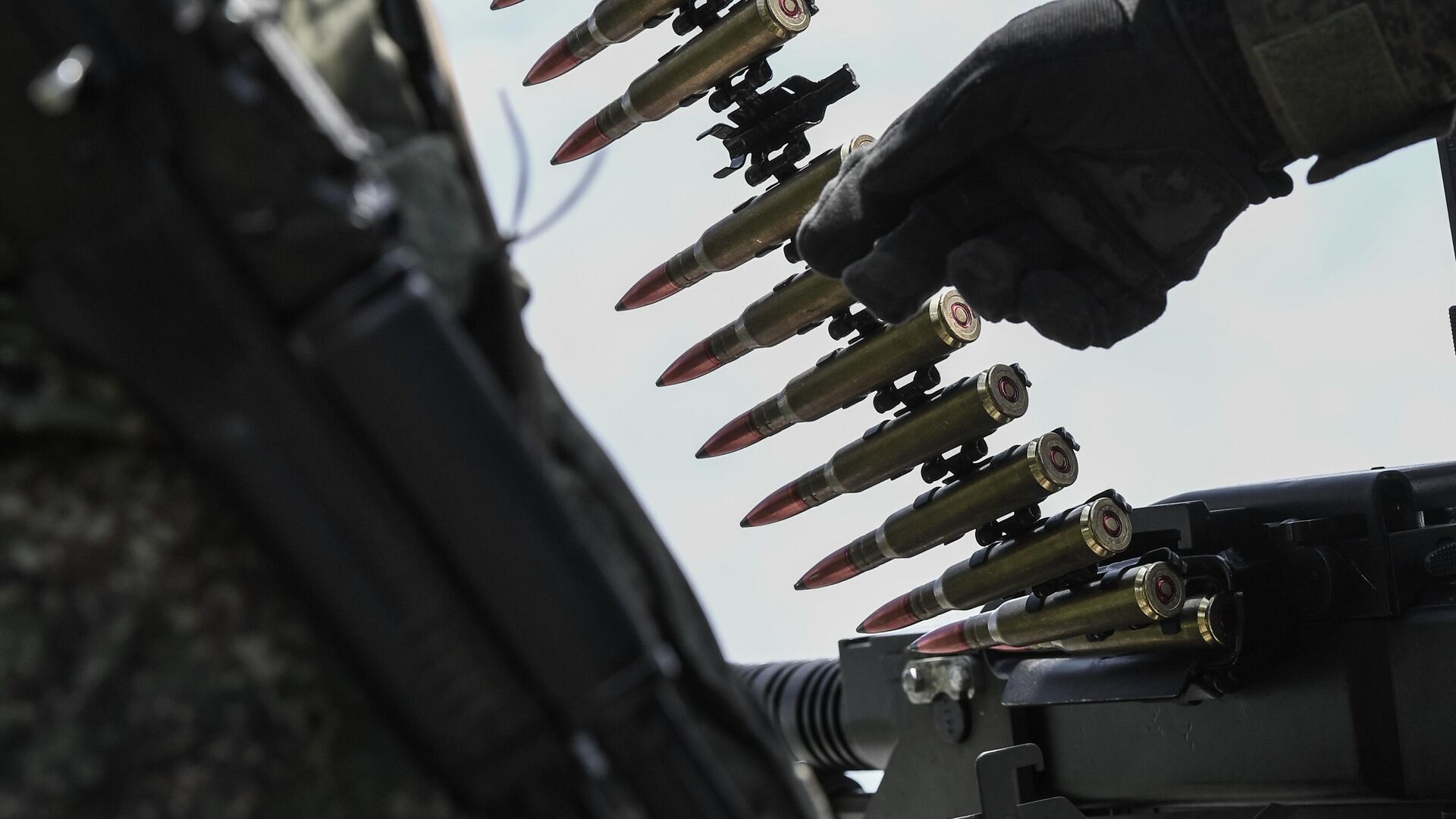
© Sputnik / Konstantin Mihalchevskiy
/ Subscribe
The US House Foreign Affairs Committee ranking member Rep. Gregory Meeks (D-N.Y.) told press that the Wagner mutiny could convince his Republican colleagues, who were talking about not continuing funding Ukraine, that the time is ripe for green-lighting more funding for Kiev on June 26.
Ukraine has failed to demonstrate much progress in its counteroffensive so far, putting the brakes on those US lawmakers who agree that new funding should depend on such.
"I agree with most observers that it will be difficult for the Biden administration to justify increased military aid packages to Ukraine without some success story to tell the American people," retired US Air Force Lt. Col. Karen Kwiatkowski, a former analyst for the US Department of Defense, told Sputnik. "At this point, the Ukraine project is easily portrayed as a waste of time and money, and is something that NATO countries may not be able to support without continued massive US domination in the provision of aid and cash," she said.
US Aid May be Depleted in Few Months
Currently, US military assistance comes to Ukraine via two main routes: first, direct supplies from the Pentagon stockpiles under the Presidential Drawdown Authority; second, the Ukraine Security Assistance Initiative (USAI) – a Pentagon-led funding program to increase Kiev's military prowess. However, "there’s no additional money in the base budget," as per defense officials as quoted by the US media.
As per the Pentagon, the US has invested $41.2 billion in security assistance to Kiev since January 2021 which includes more than $40.5 billion since the beginning of Russia's special military operation to demilitarize and de-Nazify Ukraine.
For its part, the Kiel Institute for the World Economy estimates that since the start of the Ukraine conflict, the Biden administration has directed over $76 billion in humanitarian, financial and military assistance to Ukraine. Around $47 billion of that has been allocated to Kiev's military needs, including $18.5 billion (through USAID); $23.5 billion (through the presidential drawdown authority); and $4.7 billion (through the Foreign Military Financing program).
The generous military packages for Ukraine included: numerous infantry arms and equipment; artillery (hundreds of howitzers, 38 HIMARS systems, in particular); tanks and armored carriers (109 Bradley infantry fighting vehicles, 31 Abrams tanks, 45 T-72B tanks, 90 Stryker carries, etc.); ground support vehicles; air defenses (one Patriot air defense battery, 12 Avenger air defense systems, 8 NASAMs, and 1,600 Stingers, in particular); air-to-ground missiles; manned aircraft (20 Mi-17 helicopters); explosive and surveillance drones; coastal defenses (including two Harpoon defense systems and 62 coastal and riverine patrol boats); radars and communications; as well as satellite services, as per Council on Foreign Relations (CFR) chart.
In mid-June, the White House signaled that it would send an extra $325 million in supplies to Kiev, including air defense systems, HIMARS ammunition, and armored vehicles following the beginning of its botched counteroffensive.
According to some estimates, around $36 billion in military supplies had already been delivered or contracted for Kiev by the US, leaving roughly $11 billion. Some US media suggested that at the average rate of disbursement since the conflict began, this sum could run out in four months.
On June 27, the Pentagon announced an additional security assistance package of up to $500 which includes additional armored vehicles, anti-armor systems and munitions for Patriot air defense systems and HIMARS among other items. However, Washington's Ukraine funds are fading and it's up to Congress to replenish them.
Will US Use New Pretext to Prolong Proxy War in Ukraine?
The Biden administration needs a new pretext to enhance support to Kiev. Even though there is some bipartisan consensus in the US Congress on the "necessity" to back Kiev, there is opposition from the right-wing Freedom Caucus to further spending.
US national polls also show that the US public is steadily losing appetite for prolonging the conflict. Two Republican presidential front-runners - Donald Trump and Ron DeSantis - as well as Democratic candidate Robert Kennedy, Jr., who commands the support of at least 15-20% of Democratic voters, openly express their opposition to Biden's adventurism in Ukraine.
Previously, Washington substantially stepped up military spending on Ukraine in the wake of the Bucha events groundlessly pinned on Moscow, as well as the derailment of the Russo-Ukrainian preliminary peace agreement of March 2022. The Russian forces' partial retreat in autumn 2022 also provided Team Biden with an opportunity to renew calls for further arming of Kiev under the pretext of Ukraine's "imminent" victory.
As Ukraine's much-anticipated counteroffensive largely stalled in summer 2023, it appears that the Democrats are trying to capitalize on the Wagner mutiny of June 23-24 even though its quick settlement has seemingly caught Team Biden off guard, according to Paul E. Vallely, retired US Army major general and chairman of Stand Up America US Foundation.
The US mainstream press expressed hopes that Kiev would be able to benefit from Russia's "unrest". However, despite Wagner's mutiny, the Russian army has managed to keep the situation on the frontlines stable, repelling several Ukrainian attacks over the weekend.
"I don't think Ukraine was going to be successful in the counter offensive anyhow," Vallely said. "So I think the Wagner group, what they tried to do, probably surprised Ukraine as well. But I don't think Ukraine was in a position to do anything to take advantage of it."
For her part, Karen Kwiatkowski noted that Washington was apparently hoping that "the Ukrainian forces would achieve at least one breakthrough along the lines of control, something to justify the massive Biden investment in Ukraine's political leadership."
"Hope, as they say, is not a strategy, and I do believe that the Biden Security Council is and has been preparing plans for the post-combat phase, with talk of an Israel-like 'outpost', of a 'green' rebuild of western Ukraine, and a NATO practice arena over the long term. Plans for hundreds of billions of US taxpayer money administered by Blackrock in the rump state of Ukraine have been in place for over six months at this point," she continued.
Nonetheless, despite the much-advertised counteroffensive having failed so far, what's left of Ukraine serves NATO's mission needs for the foreseeable future, Kwiatkowski noted. Ukraine still remains nothing short of being a "testing grounds" for the US military-industrial complex and justifies huge future investments in the militarization of Europe, according to the ex-Pentagon analyst.
"I think we're going to see a crescendo or some kind of, I don't know whether they're going to cease operations, but we think at the end of July, August, there's going to be a new phase in this conflict," Vallely said.
Divisions Over Ukraine Growing in West
Vallely believes that those in the West who have grown weary of the Ukraine conflict and anti-Russia sanctions that backfired on both US and European economies, need to seek the way for settlement. "That's why we're proposing a cease-fire conference in Malta in August. The Patriot International Alliance that we've formed," he remarked.
Meanwhile, Pope Francis' envoy Cardinal Matteo Zuppi arrived in Moscow on June 27. According to the US mainstream press, the cardinal is a veteran of the Catholic Church’s peace initiatives. Still, the media notes that details of Zuppi's itinerary "weren’t immediately clear." Earlier this month, the cardinal met with Ukrainian President Volodymyr Zelensky. The Kremlin laconically stated that it "welcomes" the Vatican's peace efforts.
For its part, Hungarian Prime Minister Viktor Orban, who has been skeptical about the West's involvement in the Ukraine conflict from the start, made it clear that he believes that Kiev has little if any odds of winning. In addition, Budapest has prevented the EU from approving a package of €500 million ($546 million) in military supplies for Kiev. As a result, the adoption of the eighth Ukraine package is currently hanging in the balance, as per EU foreign policy chief Josep Borrell.
The Biden administration should reconcile itself with the present geopolitical reality, according to Kwiatkowski.
"Like Biden himself, the US operates as a global 'tough guy' from the perspective of unlimited resources of cash, credibility and superiority in its military capabilities and strategies," the former Pentagon analyst said.
"It is our 'enemies' and our military and political targets who seem to have the instincts and practices developed over decades of hard choices and the tactics of defense. Resilience comes from necessity and innovation under pressure, where mistakes and white elephants are actually punished and not sustained year after year by paid-for politicians. Perhaps our leaders forgot that over-centralization and the current 'political correctness' driving all economic decisions came to a bad end in the late 1980s for the former USSR."

